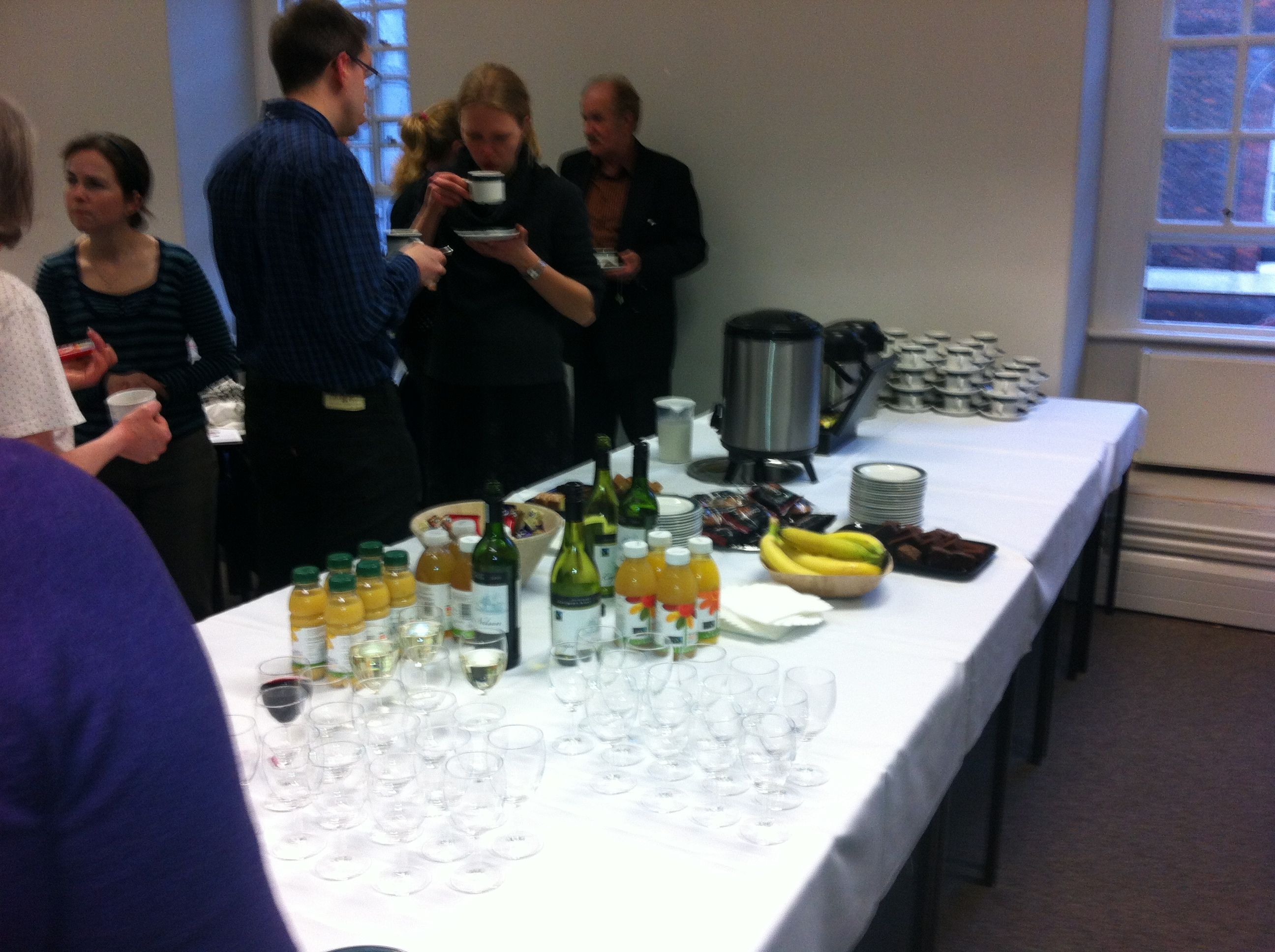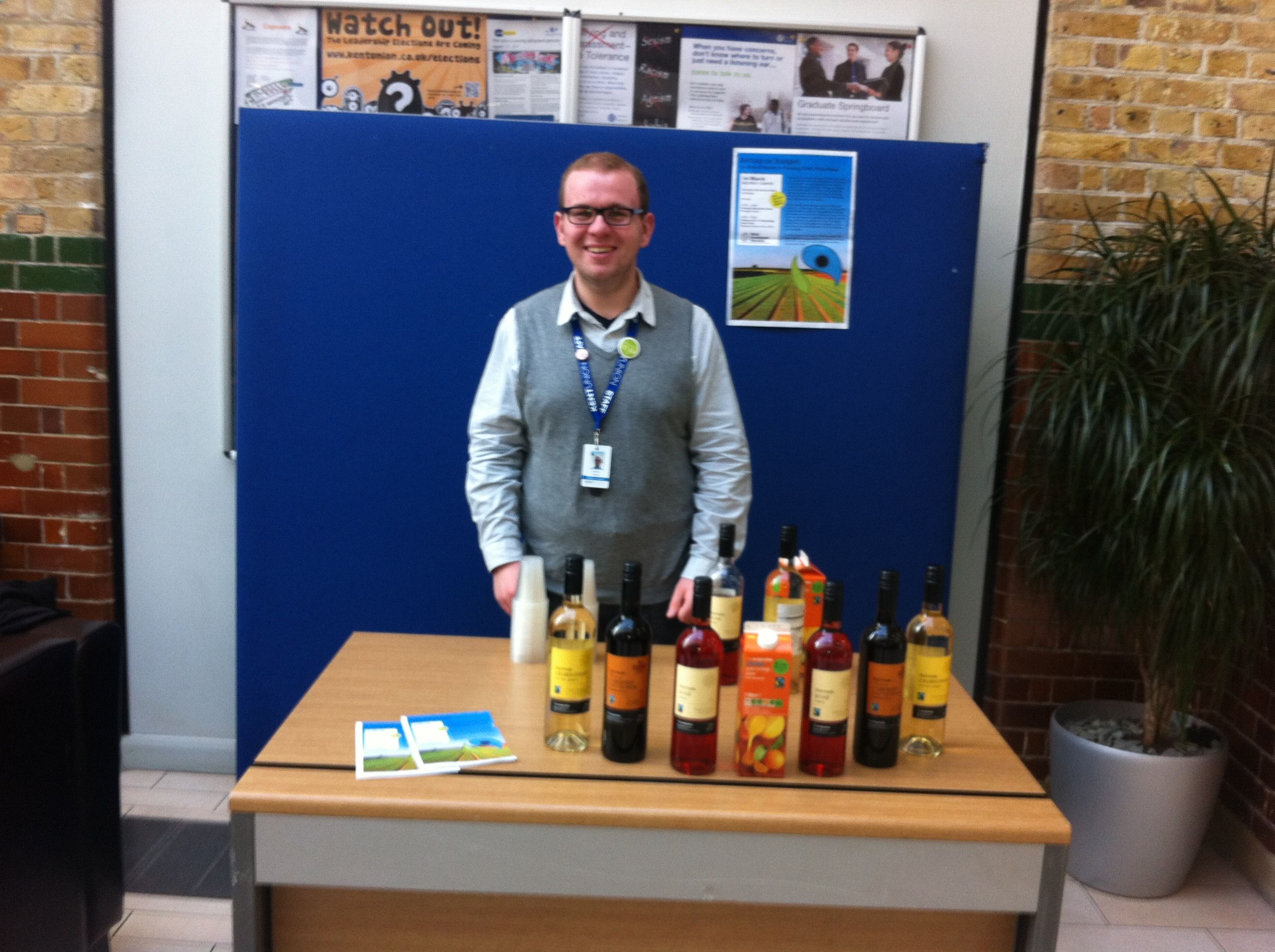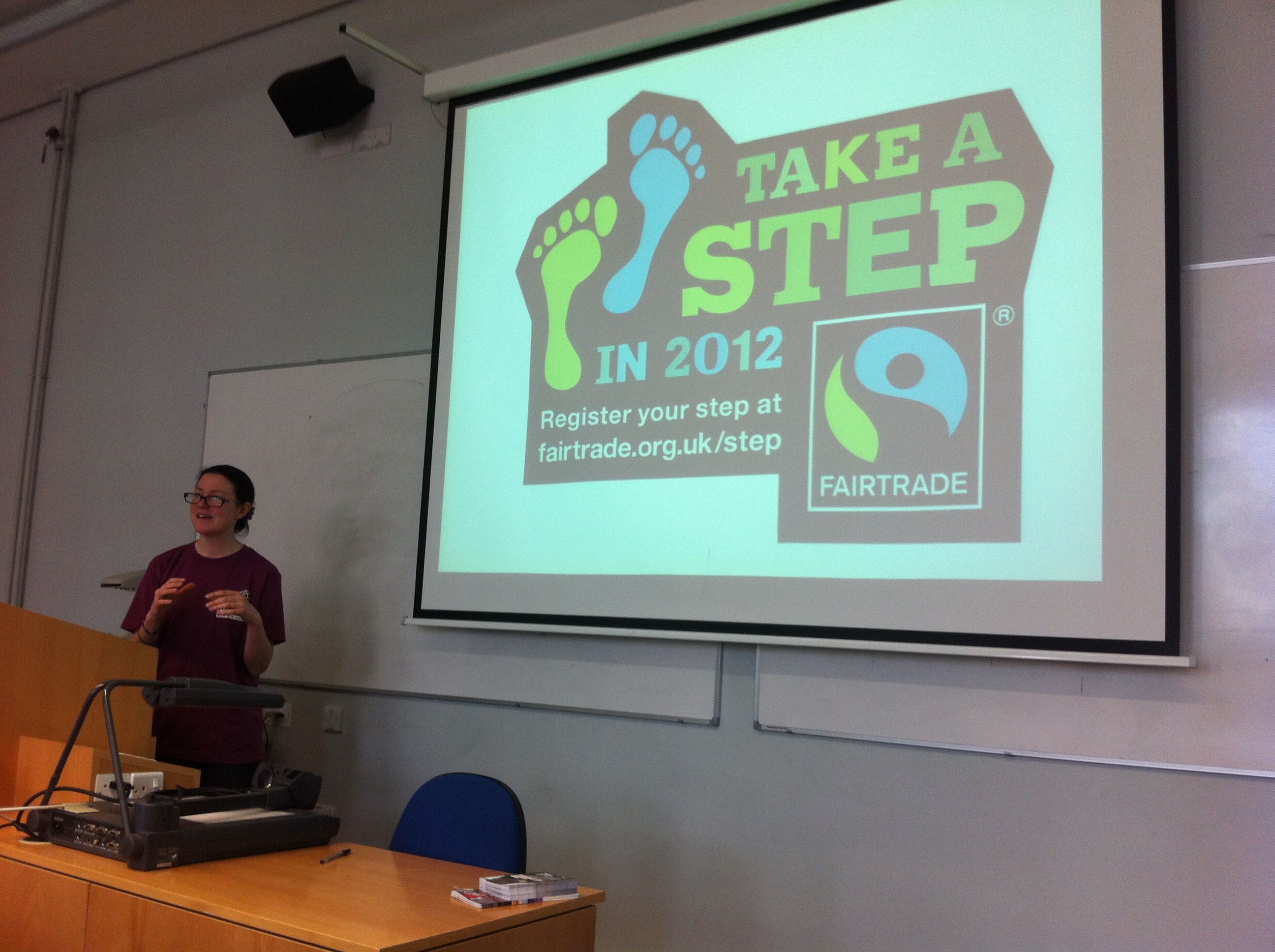Today’s blog post comes from Linda Marie Schoyen. Linda has been working with the Sustainability Team as an intern and has designed many of the posters you have probably seen around the campuses advertising Green Week and the Fairtrade Fortnight events. Linda is a specialist when it comes to sustainability fashion and has a strong interest in Fairtrade and ethical branding, she currently works for Fashion-conscience.com which is a leading eco and ethical retailer for fine fashionable clothing.
During Fairtrade Fortnight, the Sustainability team invited the World Development Movement to encourage debate on the role of the big banks and financial speculators in the trade of typical fairtrade commodities such as cocoa and sugar. The World Development Movement’s Simon Mayes gave a fascinating, and alarming, insight into the consequences of food price speculation at Greenwich campus on February 28th. On March 1st at Medway campus, food and finance campaigner Christine Haigh, also from the World Development Movement, carried the flame and asked: how can we ensure genuine fair trade?
Simon Mayes, February 28th, Greenwich Campus: Betting on Hunger: the Role of Banks in Causing Food Price Rises
The Sustainability Team was joined by a whole host of people from the University and local area including lecturers from the School of Education and Business School – including Benny Dembitzer, British economist, member of a team that won the Nobel Peace Prize in 1985 and the person who set up the first shop in the UK dealing with what we now know as Fairtrade. We toasted the evening with a few glasses Fairtrade wine and had some delicious Fairtrade cakes and chocolates to get us in the mood for the talk from the World Development Movement.
We learned that food prices are affected by a number of variables. Shifting dieatary habits, climate change affecting crops, the growth in world population and the value of the dollar all have an impact on food price trends. However, Mayes emphasised that many of these factors are more long term and do not logically account for sudden price changes such as the unprecedented price spikes of 2008. Banks and hedge funds speculating on future food prices are largely to blame for such swift food price spikes, resulting in severe consequences for the consumers in developing countries. From 2006 to 2011, US$126 billion was gambled on food price speculation. There is a wide consensus in the global political climate that betting on food prices in financial markets needs to be regulated to prevent massive price hikes from aggravating poverty and hunger.
When prices increase on other commodities such as electronics, fuel or oil, many people will budget around the increases and reduce their consumption. With food, however, consumers in developing countries simply cannot budget for price rises; one has to eat to survive. Consequently, results of food speculation can be devastating for the poorest consumers in the world.
What can we do to make a change? According to Mayes, we can demand tougher rules from the Treasury to enforce on banks involved in food price speculation. Get in touch and pressure them! You can learn more about how to make a difference by joining WDM or signing up to their newsletter. Another resource for more information on how you can get involved and in-depth research on the issue can be found on WDM’s Food Speculation Resources site.
Christine Haigh, March 1st, Medway Campus: Taking on the 1%: Demanding Fairer Trade
At Medway Campus, the Sustainability Team was joined by enthusiastic staff as well as experts on environmental sustainability, food and farming. It was great to see so many people with such expert knowledge in environmental and farming issues engaging in the debate.
Haigh gave an introduction to the concept of Fairtrade and its origins. Fairtrade is a social movement and a market-based approach that was shaped in Europe in the 1960s, providing markets for producers. The Fairtrade movement has grown substantially over the past few decades, and even though it represents a small fraction of world trade in physical merchandise, some Fairtrade products account for 20-50% of all sales in their product categories in individual countries.
Despite the success of Fairtrade products, the movement cannot singlehandedly deliver an international fair trading system, this would require huge international market regulations that are way beyond the Fairtrade movement’s influence. Haigh continued on Mayes’ topic from Greenwich campus on the the alarming consequences that food speculation can have on some of the world’s poorest people. Contrary to common belief, high food prices are not necessarily good for farmers. High prices do not necessarily benefit the farmers when a Fairtrade scheme isn’t in place, but often the benefits go to the big companies who trade on a far grander scale on the international markets.
What do the WDM think a fair food system would look like?
- Everyone would have right to food
- Producers recognised
- Localised production would be a priority
- There would be greater control of resources, knowledge and skills
- The food system would be environmentally sustainable
What can you do? Get involved! Pressure and call for more transparency in food prices, and push for limits to be posed on individual banks and bodies.












